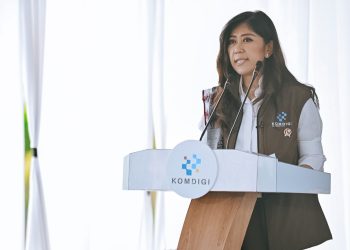Jakarta, Indonesia Sentinel — Indonesia’s Ministry of Communication and Digital Affairs (Komdigi) revealed that the World platform has been operating in the country since 2021 and has collected over 500,000 retinal scans from Indonesian users.
The information emerged after Komdigi received clarification from Tools for Humanity (TFH), the startup behind the World platform. Alexander Sabar, Director General of Digital Space Oversight at Komdigi, said TFH was questioned on Wednesday, May 7.
“TFH informed us they have collected more than 500,000 retinal scans and retina codes from users in Indonesia since their operations began in 2021,” Alexander stated during a press briefing at the Komdigi office in Jakarta on Friday, May 9.
Alexander said the ministry is currently reviewing TFH’s explanation internally and will conduct a technical analysis of the app, including a review of its privacy policy. A formal decision based on the evaluation is expected to be announced soon.
He also noted that Komdigi may request the deletion of Indonesian users’ retinal data if violations are found.
“Our steps are focused on protecting personal data. If we find any risk of data breaches, especially concerning how and where the data was stored, we may take firm action, including asking the company to erase the data,” he said.
Read Also:
Indonesia Suspends World App Operations Amid Privacy Concerns Over Iris-Scanning Program
Komdigi also would demand the permanent deletion of the data should the platform be found in violation of local laws.
Alexander said, “If there is a clear risk of a data breach or other issues, we will definitely take strong measures to protect the personal data of our citizens.”
In addition to questions about the collection of biometric data, Komdigi also demanded detailed clarification on the legal compliance and operational practices of the World App, Worldcoin, and World ID services.
“Key points discussed during the meeting included TFH’s business model, the ecosystem of its products, and their compliance with Indonesia’s data protection regulations, including the practice of offering financial incentives in exchange for personal data,” he added.
(Raidi/Agung)

























